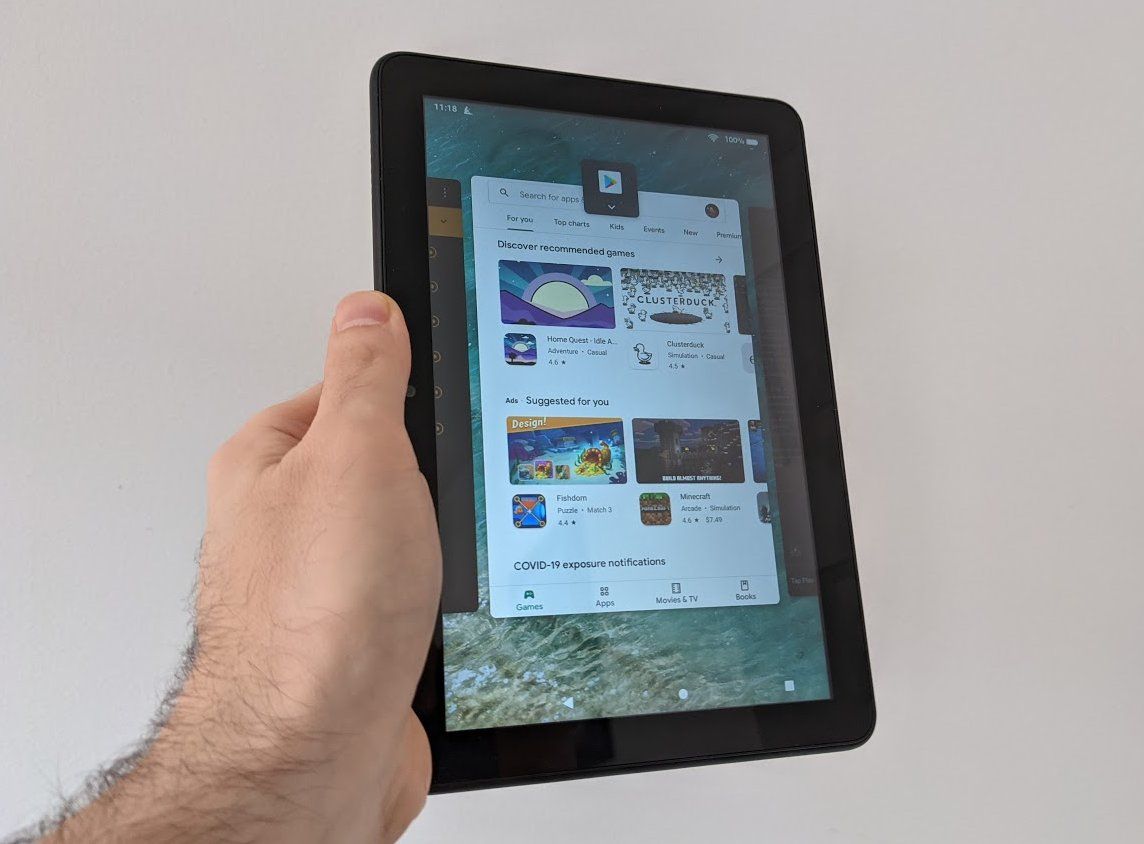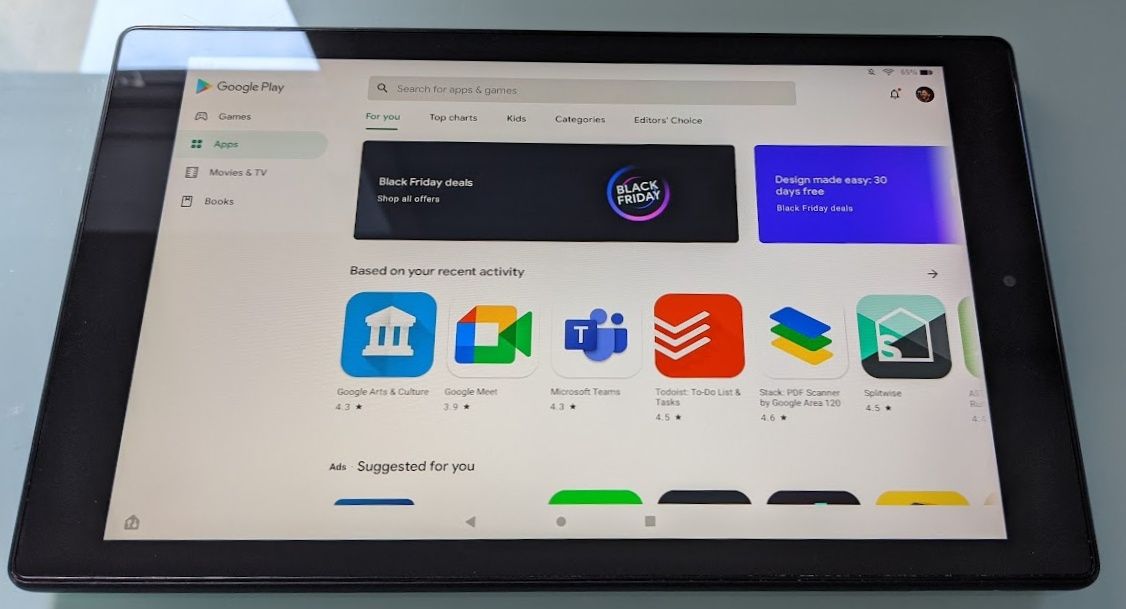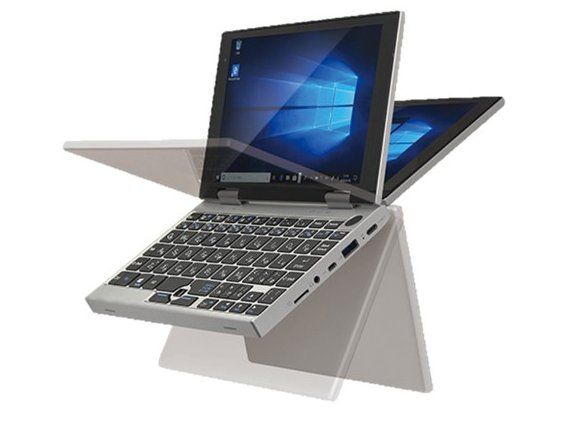Liliputing
Facebook changed the name of its parent company to Meta last year as part of an attempt to refocus the future of the company that’s best known for social media apps that run on other company’s platforms, like Android and iOS. It’s not clear if or when the so-called metaverse will really take off, but if it does, Meta wants to be at the forefront.
And CEO Mark Zuckerberg is betting that one way to get there is with augmented reality glasses that could be as transformative for the company and the world as Apple’s iPhone. How big? According to The Verge, Meta has 18,000 people working on metaverse-related software and spent $10 billion on the effort in 2021. The company expects to launch its first standalone augmented reality glasses in 2024.
But those first-gen glasses are expected to be aimed at early adopters and have limited functionality. They’ll only get around four hours of battery life and they could cost thousands of dollars to produce (although it’s possible that Facebook will subsidized the price and sell them at a low cost to customers in order to spur consumer adoption). The Verge’s sources say that Facebook only expects to sell tens of thousands of these first-gen glasses.
But that’s just the tip of the iceberg. Meta is also said to be preparing 2nd-gen and 3rd-gen versions, plus a simpler headset that’s designed to pair with a smartphone and display notifications. Also in the pipeline? That wrist-worn control device the company showed off last year is expected to work with the upcoming AR glasses.
What remains unclear is whether augmented reality actually has the possibility of becoming as transformative as smartphones… or if it’s another technological dead end like 3D TV, which was widely hyped for years and then sort of fizzled out.
I’d highly recommend checking out The Verge’s article though, not only to get more info about what Facebook’s parent company is up to, but also why Meta seems to think it’s important to branch out into a new market in the first place, despite already running the world’s most widely used social media service.
Here’s a roundup of recent tech news from around the web.
Meta reportedly hopes to launch its first standalone augmented reality glasses for early adopters in 2024, possibly along with cheaper smart glasses that pair with a phone to display notifications. Way more details about Meta’s roadmap in the full article. https://t.co/KOUzFi0068
— Liliputing (@liliputingnews) April 13, 2022
The Steam Deck is designed to be a handheld gaming PC. But you can also connect an external display for at-home gaming. And if you’re willing to crack open the case it turns out you can also connect an external GPU and trade portability for performance. https://t.co/JOEnIdDQv7
— Liliputing (@liliputingnews) April 13, 2022
Mixtile Blade 3 is a single-board PC with a Rockchip RK3588 processor that’s designed to be stackable for use in clusters joined by PCIe Gen3 edge connectors. Network speeds up to 20 Gbps and memory bandwidth up to 136 GB/s. Crowdfunding soon. https://t.co/ZKg3ls07ng
— Liliputing (@liliputingnews) April 13, 2022
Motorola launches the Moto G52 budget smartphone in Europe with a 6.6 inch 90 HZ display, 5,000 mAh battery, and Snapdragon 680 processor. Prices start at €250 for a 4GB/128GB model, but there’s also a 6GB/128GB version in some regions. https://t.co/n7dmwugwAW
— Liliputing (@liliputingnews) April 13, 2022
The ECS SG20QT1C is a budget 11.6 inch Chromebook with a Snapdragon 7c processor, HD display, 4GB LPDDR4x RAM, up to 64GB of eMMC storage, and optional 4G LTE Cat 13 (600 Mbps DL / 150Mbps UL). Probably an OEM device to be sold under different brand name. https://t.co/kIP9qDl1LD pic.twitter.com/mDDLZJgDFP
— Liliputing (@liliputingnews) April 13, 2022
Keep up on the latest headlines by following Liliputing on Twitter and Facebook and follow @LinuxSmartphone on Twitter and Facebook for the latest news on open source mobile phones.
Liliputing’s primary sources of revenue are advertising and affiliate links (if you click the «Shop» button at the top of the page and buy something on Amazon, for example, we’ll get a small commission).
But there are several ways you can support the site directly even if you’re using an ad blocker* and hate online shopping.
Contribute to our Patreon campaign
or…
Contribute via PayPal
4 Comments
Your email address will not be published.
This site uses Akismet to reduce spam. Learn how your comment data is processed.
RK3588 looks like a great little SOC, but it’s cost and board size pushes it closer to PC territory. Imagine a Beowulf cluster of those Mixtile Blade 3 boards!
https://en.wikipedia.org/wiki/Beowulf_cluster
I’d be more interested in an article elucidating how such devices could augment reality; billions of dollars in sales of “augmented reality” glasses alone won’t serve to validate their existence for me. An Android-driven heads-up display of upcoming appointments and notes hardly qualifies as augmented reality to me — telescopic, noctiscopic, sensor-assisted vision broadening perception beyond the spectrum of visible light and increasing its sensitivity would.
Yeah, obviously they’re going to have to create some kind of network effect so it becomes really difficult to participate in society without them, before plastering every vertical surface in ads becomes profitable. But if they do, it’s going to cost a LOT more up front in social engineering than the adoption of smartphones did, since smartphones enabled more convenient on-demand access to things most people were using computers for.
I think they may have to actually invent some completely new system or spend buckets of money inorganically extending some existing system so that it works with AR headsets easier than with phones. Common stuff like authentication, navigation, translation, paying for things, all of which can be done with phones. They would have to spend tons of money to essentially bribe the administration of such systems to make them easier for AR and harder for phones. And if they can’t make it much harder, they might have to resort to social engineering people into insulting you for not buying into the AR system since it didn’t seem to be worth it. And since they can’t roll something like that out overnight, they’d either need to spend years rolling it out piece by piece in carefully calculated moves, or take advantage of or even CAUSE another gigantic international social panic which would somehow create such a system that would compel the use of AR headsets.
Investors may simply decide augmented reality is not worth it before it ever gets to that point.
Whatever the case, I don’t really foresee AR headsets making people happier.
Augmented reality is potentially extremely profitable, since if everyone bought into it, all signs, posters, billboards, menus, and ads could be replaced with QR codes (perhaps only visible in infrared) which would tell glasses to display whatever the highest bidder for that space wanted.
This would be hell. People already live in completely different worlds based on how they think things work from what the internet taught them, and will strike out in anger at anything that contradicts that. Now imagine that people standing next to each other can’t even agree on what a given sign says because the sign itself won’t let them. Worse, imagine if the sign said something like “the person next to you is a [political affiliation]”, but the other person saw it say “[another political affiliation]”.
Now imagine you can’t see the prices of items at a grocery store without the glasses and the prices you pay are unique to you, specifically.
So yeah, I’d bet on it too if I was a company as monstrous as Facebook, one determined to short circuit evolution and make everyone as miserable as possible.
As for the term “metaverse” itself, trying to sort technologies into whether they are “metaverse”-specific is meaningless. Because the word is meaningless. Massive social engineering campaigns have been afoot since the Meta rebrand to use it as often as possible, so basically it refers to “any multiplayer VR or AR experience”. Pokemon Go is now part of “the metaverse”. Meta did this because they couldn’t trademark or copyright “metaverse”, but they wanted to be the thing everyone thinks of when they hear the word, even though their actual product is called something different.
To spite these people I will only ever say augmented or virtual reality.
Hack your Amazon Fire tablet with Fire Toolbox (Install Google Play, remove Amazon apps, and more)
How to install Google Play on Amazon Fire tablets
How to sideload Android apps on Windows 11
Daily Deals (4-14-2022)
StarBook Mk V Linux laptop now comes with AMD or Intel processor options
Lilbits: What to know about Ubuntu 22.04 and Intel Alder Lake, and a Chromebook with AMD Ryzen 7 5800U
Nanote Next is a cheap 7 inch mini-laptop with slightly better specs than last year’s model (Japan)
Enter your email address to subscribe to this blog and receive notifications of new posts by email.
Join 15,011 other subscribers









